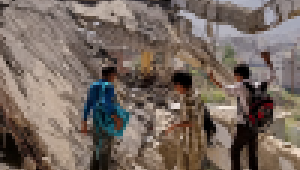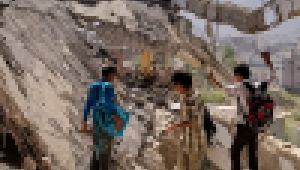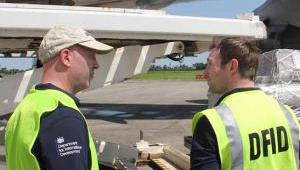By Lucy Phillips
3 February 2011
Securing value for money in overseas aid will become more difficult as more funds are channelled towards fragile and war-torn states, MPs have warned.
A report published today by the Commons’ international development select committee welcomes the government’s commitment in the Comprehensive Spending Review to increase spending on fragile and conflict-affected states from £1.8bn in 2010 to £3.8bn in 2014/15.
But the report, which examines the Department for International Development’s 2009/10 accounts, cautions that it will be difficult to ensure every pound is well spent in such environments. The funding increase is also likely to see less aid given to poor countries where more could be achieved.
Committee chair Malcolm Bruce said: ‘There is no getting away from it, this is going to pose severe difficulties when it comes to making sure every pound is well spent.
‘War-torn or fragile states are inevitably more vulnerable to corruption and maladministration.’
In line with international obligations, the government has committed to spending 0.7% of gross national income on overseas aid by 2013. This will involve spending an additional £2.5bn in 2013/14 to take the whole department budget to £11.3bn that year.
But the department is also expected to reduce its running costs from 4% of its total budget to 2% over the CSR period. If achieved, the committee said, this would make the department one of the most cost-efficient development organisations in the world.
The savings are to be achieved through reducing back-office administration costs by £34m. The MPs noted that cuts had already been made in functions such as human resources, which had shed more than a third of staff, and said ministers must ensure that further cuts do not undermine the department’s ability to deliver aid programmes effectively.
The committee also raised concern over its discovery that last year’s papal visit to the UK was partly funded by money for overseas aid. Some £1.85m was transferred from the department to the Foreign Office for the event.
‘Many people will be as surprised as we were to discover
that UK aid money was used to fund the pope’s visit last year,’ said Bruce.
A department spokesman said several ministries had funded the pope’s visit. ‘Our contribution recognised the Catholic Church 's role as a major provider of health and education services in developing countries,' he said. 'This money does not constitute official development assistance and is therefore additional to the coalition government's historic commitment to meet the 0.7% UN aid target from 2013.’
But the MPs welcomed moves by International Development Secretary Andrew Mitchell to increase spending accountability in his department. This included the creation of a watchdog, the Independent Commission for Aid Impact, and an Aid Transparency Guarantee, where all spending over £500 will be published on the department’s website.




















